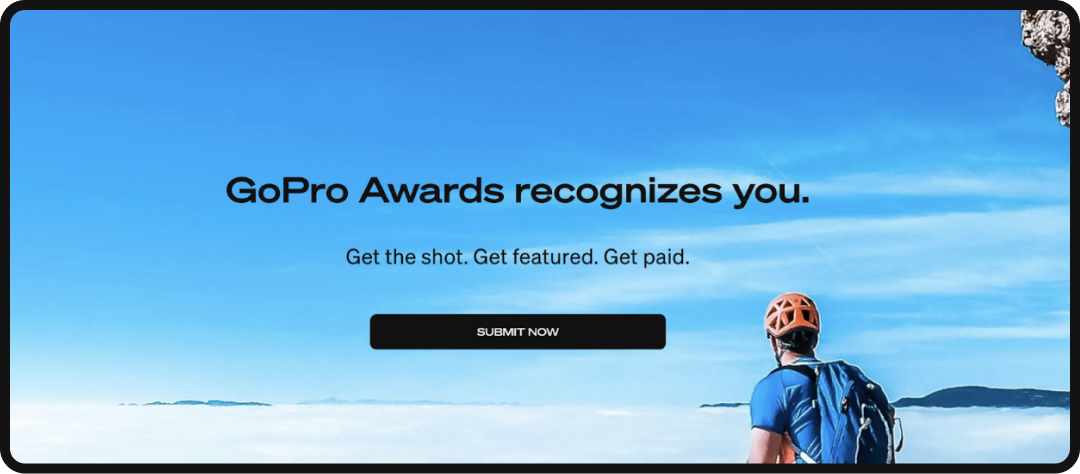On social media, audiences are increasingly favoring content that aligns with their interests. They’re turning to social media to learn about new products. We’ve seen this with the rise of TikTok’s interest-based algorithm and Instagram’s move to incorporate more “recommended” accounts in a user’s feed.
TikTok’s content DNA is, essentially, user-generated content (UGC). Due to the short duration of videos, fullscreen real estate, entertaining delivery, and overall culture of authenticity, TikTok is the perfect platform for brands to connect with their target audiences through sourcing and sharing UGC. Unlike traditional advertising, TikTok UGC thrives on authenticity, community engagement, and related content that resonates with everyday users. When brands utilize UGC, they can build genuine connections with users while establishing community at every stage of the funnel.
In this guide, we’ll explore TikTok UGC, its importance, and best practices for leveraging it in your marketing strategy.
What is UGC on TikTok?
TikTok UGC refers to user-generated content created by everyday users, influencers, and content creators rather than brand-created videos. This type of content includes product reviews, reaction videos, dance challenges, hashtag challenges, how-to videos, and product-in-action showcases. UGC on TikTok fosters a sense of community and genuine connections between brands and consumers, driving higher engagement rates, influencing purchasing decisions, and building trust among consumers throughout the entire marketing funnel.
Why is TikTok UGC Important for Brands?
The concept of brands using UGC as a means of promotion is nothing new, but it’s a critical method for brands to show what a product looks like, how it’s used, build consumer loyalty, trust, and garner social proof.
Consumers trust content created by customers over content created by brands. More so, brands that utilize UGC are more likely to be viewed by consumers in comparison to brand-produced content – so if your brand isn’t utilizing UGC, you’re losing out on the opportunity to build a trusting relationship with your audience.
The Core Benefits of TikTok UGC
There are a few key advantages that TikTok-specific UGC carries, making this channel a valuable investment for any brand as part of their growth strategy:
- TikTok is a perfect experimentation channel with fast learnings. TikTok allows you to test variables such as brand positioning, messaging, video formats, delivery, and more in a short span of time, yielding fast and substantial learnings to apply to your strategy on TikTok and across other channels.
- If content performs on TikTok, it’s likely to perform on other channels. The beauty of TikTok UGC is that it can be considered the “origin” of truly organic content — and if you uncover top performers on this channel, they’re perfect assets to be repurposed across your strategies on Meta, YouTube, Pinterest, etc.
- TikTok’s algorithm prioritizes UGC. When you post UGC, TikTok will help you reach a wider audience. UGC TikTok campaigns have higher engagement rates than traditional advertising.
- UGC is a fast-turnaround content format. The unpolished and organic feel of these videos means that they can be created with little equipment – all you really need is a smartphone and good lighting – meaning that the turnaround times are shorter and production costs are significantly lower.
- UGC equals automatic community validation and social proof. As mentioned earlier, consumers are more likely to follow the recommendations and advice of a peer or a creator rather than a brand, and UGC is essentially content with a built-in social proof mechanism that establishes consumer trust from the first second.
- UGC can inspire audience interaction and participation. When the content feels genuine and organic, it can encourage viewers to give their authentic reactions. User participation can then help build emotional connections and trust with potential customers.

How Brands Can Effectively Use TikTok UGC
1. Understand Your User and Encourage Them to Participate
When starting to build a UGC strategy, it’s crucial to start by understanding your ideal customer. Put yourself in their shoes, and strive to meet them where they’re at. Successful marketing relies on thinking from the consumer’s perspective to better understand their wants and needs.
Here are a few questions to get you started:
- What is their occupation?
- What are their hobbies?
- Where do they shop?
- How do they get their news?
- Which social platforms do they spend the most time on?
- What do they value?
- What kind of content do they interact with?
- What keeps them up at night?
- What problem do they have that they are aware of or unaware of?
Even if some of these questions don’t seem immediately relevant to your brand or what you’re selling, the more you can understand your consumer, the easier it will be to create content that speaks to them and converts.
And, the better you understand your customer, the more likely it is that your content resonates with them and they’re inspired to more deeply engage with you and your brand. Audiences who are invested can then even possibly become creators to fuel your UGC by creating authentic content using branded hashtags. This gives you the opportunity to feature real users in your marketing efforts, thereby building a stronger social community.
2. Research and Source UGC Creators
UGC can come from brand enthusiasts, employees, influencers, or by partnering with content creators (our preferred method here at NoGood). If you’re looking to source UGC from your audience, look through branded tags or hashtags. This can be a goldmine of potential content, and can give you a better understanding of potential users to continue to partner with for any additional UGC production.
If you’re reaching out to anyone to explore a partnership, ensure you have your campaign goals solidified so you can build better alignment with your chosen content creator. Here are some questions to consider while in the planning stage:
- What is the objective? (Awareness, Consideration, Conversion)
- What is the ideal content format? (Filming requirements)
- What is the core value prop or messaging you want to communicate? (We want audiences to purchase this product, etc.)
When it’s time to find creators to build relationships and partner with, go back to your prior research on your audience and what they care about. What types of creators (if any) were they following? Which accounts were they interacting with? Identify and reach out to 10-15 rising stars or micro-influencers who align with your brand category or brand adjacent category.
Take Equinox, for example. Equinox falls under the health and wellness vertical. Their audience is metropolitan, they have expendable income, are well-traveled, and care about their mental and physical wellbeing. A creator for Equinox wouldn’t necessarily have to be a buff gym rat but could be an upscale traveler, a fancy food blogger, or a Goop-like influencer. These accounts also have followers that would fall under the same category as Equinox.

It’s okay to start small – in fact, we recommend it. When starting to build up your creator partnerships, look for creators with less than 100K followers. These creators are more likely to have higher engagement rates, lower contractual rates, and higher conversion rates than some of the larger accounts. Big followings do not always equal high engagement or ROAS.
Though it seems like every content creator is looking to make it big as a UGC creator, not every creator or piece of UGC will align with your TikTok strategy. Keep your content pillars in mind and don’t lose sight of your broader social media goals.
Never source a creator purely based on a single numeric dimension (read: follower count). Pay close attention to the skill of the creator before anything else. Here’s a shortlist of items to keep an eye out for when selecting the creators (in-house or partners):
- Impeccable storytelling. Your brand is battling a high level of saturation of content across multiple channels and it’s simply not enough to showcase aesthetic photos or stop-motion videos of products. The creator should showcase a strong ability to weave your product or service into a relatable, valuable story.
- Unique perspective. The best creator partners are those who are able to inject their unique personality into the content to make it captivating, scroll-stopping, personal, and more importantly, relevant.
- Shared values. Surprisingly, this point is often overlooked, but it should be an indispensable qualifier for any successful brand-creator relationship. It won’t be enough that the creator has the skill and the numbers you’re looking for. The true success of any collaboration or long-term partnership stems from a strong connection between the creator’s values and the brand’s. Consumers are savvy enough to quickly recognize a relationship that’s transactional, so a personal affinity is almost a pre-requisite for successful UGC content creation.
3. Build Relationships with Potential Creators and Partners
There are several influencer marketing platforms and partners that can source creators for you, including our own TikTok Studio with our in-house, dedicated creators and a creator network for any collaborations necessary.
These agencies source from their own roster of partner creators based on your criteria through algorithmic matching including niche, platform, and budget. Though some just provide sourcing, others offer end-to-end campaign management from finding creators and negotiating contracts to delivering assets and monitoring ad performance.
For a more personal approach, it never hurts to reach out to a creator directly to build a personal connection. The more connected a creator feels to your brand and its mission, the more authentic and aligned their UGC will be. When relationships are created and maintained, creators can turn into true brand ambassadors that users learn to trust.
Because relationship building is such an important aspect of this strategy, it’s important not to burn any bridges. Treat your creators well, and they’ll work to produce the best content they can. Establish a relationship with the creators that show passion and dedication for the idea, follow your guidelines, and provide authentic, thoughtful content. Though building relationships one at a time can be a time-consuming process, it allows your brand and the creator to produce more meaningful content that will resonate with your target audience.
4. Monitor Performance with Analytics Tools
Once you receive your UGC, it’s time to launch your assets. You’ll want to maintain records of the content produced and track your mix of evergreen brand awareness content against viral TikTok trends to find the ratio that works best for your audience – all while maintaining your consistent brand identity and voice.
Following posting, you’ll want to use TikTok analytics tools to track metrics like views, reach, interactions, watch time, and follows to understand the success of your UGC. These metrics can help give you a bird’s eye view of what’s working and what’s not working to better inform and refine your future content strategy.
You should consider repurposing the videos that are doing well for your omnichannel strategy. Start with Facebook and Instagram Reels before posting to YouTube Shorts and Snapchat Spotlight. If you see continued success, consider sharing to X and Pinterest.
Analyze and track the video’s performance and identify what trends and styles are working per platform. Are users gravitating toward trending skits on Pinterest or just on TikTok? Which platform has the highest CTR for your top-performing video? Look for common characteristics from platform to platform, but also consider your unique audiences per platform. By experimenting with different types of content on different platforms, you can better tailor your content for those particular audiences.
5. Use UGC in Paid Social Advertising
Posting ad content on social media must be done strategically, but it usually works well as it appears more organic and trustworthy compared to traditional marketing or digital advertisements.
To build your TikTok ad audience, leverage top-performing ad groups from your other ad platforms and collect all historical data from your consumer data platform. First-party data will also be highly valuable. In Google Analytics, leverage your Cohort Analysis, Audience Insights, Demographics, Interests, and Affinity Categories to discover new audiences, their interests, and more. This analysis allows you to build more effective and tailored audience targeting and creative assets once you’re in TikTok Ads Manager.
If available, tap into predictive analytics to better understand your audience and how their purchase behavior is evolving. This information will help in future decisions including content themes, assets, and messaging for you to stay ahead of the consumer and approach your social ads with the full funnel in mind.
When creating content that you’re planning to serve as an ad, make sure the practices you follow – and the instructions you give to any content creators you’re working with – focus on relatable content. The posts that are more heavily polished or clearly created by the brand themselves tend to not perform as well. Remember, the main benefit of UGC is the authenticity, and this can serve you in paid advertisements as well.
Top-performing organic videos are often the most successful in paid campaigns, since this is the content you know is resonating with your audience. There are a number of different ads you can run on TikTok, but for UGC, we like Spark Ads.
Spark Ads
Spark Ads are similar to boosting an Instagram post, but more powerful. This native ad format allows you to leverage your organic posts to generate even more results at any stage of the funnel. The content, pulled from the organic post, includes all the features of the original post with the addition of a CTA leading to your chosen landing page or a TikTok Instant Page (which serves as a lead generation form).
The Spark Ad is pushed out to your pre-determined Ad Group audience or a new custom audience while it still runs organically. A Sparked Ad not only increases content performance but it also assists in getting your content in front of your target audience with conversions in mind.
When choosing to Spark a post, you have the option to use your linked account or a custom identity. The beauty of Sparking includes the ability to run an ad from another authorized account – this is especially pertinent when working with creators and UGC.
For example, JVN Hair’s TikTok account can Spark their own organic posts or Spark organic content from authorized accounts including Founder Jonathan Van Ness’s TikTok account or creators and influencers who produced UGC. The Spark Ad then looks like it comes from the creator’s account (or your brand account), allowing the content to appear in front of even more audiences, increasing reach, awareness, and conversions.

With these custom identity options, brands can experiment with what works best for their UGC. Do audiences trust content that appears from content creator accounts or only brand-owned channels? Play around with not only the different types of content sparked but also campaign types and identities to determine the best combination for your target audience.
Analyzing Paid Assets
Now that you have a mix of organic and paid UGC circulating, it’s time to assess what’s working. Keep tabs on paid analytics like CR, CTR, CPC, CPA, CPR, and more. Take note of which assets were Sparked and what the starting point was prior to it being Sparked. This will help identify if the Spark was worth it and help inform future content decisions.
When analyzing a specific ad, compare it to how it performed against previous assets. What was the production quality? What was the identity of the Spark Ad? What was the intended result? By testing different types of UGC, determine which assets your audience engaged with more and double down in that area, working with the creator to produce more content or find similar creators to diversify your feed.
Finally, take a look at that CPA – cost per action. The data from TikTok Ads Manager only tells half the story. The CPA provided is just a result of the ad CPA, but additional considerations should be made. Calculate your influencer’s fees and cost for goods provided in addition to platform fees. Based on these results, you can ask yourself: what is the total ROI, and could this be a worthwhile long-term process that can be duplicated and scaled? If the answer is yes, great. If not, it’s time to go back to the drawing board and determine where you overspent or where you can make additional optimizations to improve your ROI.
6. Create a Sustainable Content Strategy: the UGC Flywheel
You’ve looked at your ROAS and ROI and determined that this is a sustainable platform – congratulations, you’ve now entered the UGC flywheel.

This growth loop not only assists in increasing conversions but also builds community along the way. By encouraging UGC through hashtags, giveaway challenges, or consumers just loving your product, brands can tap into their social community to use UGC, or work with brand-aligned creators to produce UGC that will benefit both their audience and your own.
Focus on continuous UGC sourcing, and start by identifying the long-term win-win for your preferred creators. Is it equity, larger-scale partnerships, bigger returns, or free products or services? What does the creator get out of your partnership and more so, what does their following get out of it? Are you providing a special discount code for the creator’s followers? Are you providing a larger platform for the creator to gain exposure?
With a TikTok UGC flywheel, your ultimate goal is to build a network of reliable content creators that will create high-quality content that aligns with your brand goals and target audience. When you find a content creator that’s reliable, consistent, and able to deliver quality content that resonates with your audience and yields big results – do everything you can to build a relationship with them that’s beneficial to the both of you.
All in all, a healthy channel mix of brand-created content and user-generated videos ensures consistent engagement with users and will help you continuously reach your conversion goals.
Successful UGC TikTok Campaigns for Inspiration
The following brands are accounts that have been killing it with their use of UGC. Not only are the videos native to the TikTok style but they also align with their brand persona and achieve their overall awareness and conversion goals in a relatable and authentic way.
JVN Hair | @jvnhair
JVN Hair, founded by Queer Eye star Jonathan Van Ness, has amassed a large TikTok following through their how-to videos, before and afters, and fun and relatable skits all featuring their suite of products. The JVN Hair account has a pulse on pop culture and leverages editing that remains native to the TikTok platform.
On their profile feed, you can see their diverse clientele using JVN products — each in their own individual way. Their bio reads, “Come as you are,” which perfectly encapsulates the individuals represented in their content. The brand doesn’t discriminate against age, gender, ethnicity, or sexuality and makes its platform a welcoming and inclusive place for everyone.
GoPro | @gopro
Who better to show off your product in action than your customers? GoPro’s handheld video cameras are built for adventure, and users have used them to film their outdoor activities from every corner of the world.
Before the launch of TikTok, GoPro packed their YouTube page with UGC to show their products in use as well as the quality of their product. This approach led them to building a YouTube channel that’s over 10 million subscribers strong. Once TikTok gained momentum, GoPro jumped on the platform quickly with the same approach as their YouTube channel — using UGC from their consumers.

Submitting videos has become such a phenomenon that GoPro now has a submission portal on their website that allows users to upload their content. If they’re chosen, the user will receive rewards in cash, gear, and of course, global exposure. This submission platform is a brand-led way of generating and encouraging UGC without having to go out and source creators.
Chubbies | @chubbiesshorts
Chubbies feels anything but meticulously curated and overproduced. As “the official outfitters of Friday at 5 pm,” the casual menswear brand brings the personality of their colorful shorts to their UGC on TikTok. Chubbies partners with tons of well-known and lesser-known content creators that each produce content in their own style, diversifying the Chubbies feed and showing a lifestyle filled with fun and style.
NoGood | @nogood.io
Our data scientists here at NoGood specialize in skills ranging from SEO, SEM, CRO, social advertising, data visualization, a full creative design studio, and newest to the lot – an in-house TikTok Studio providing content creator sourcing, editing, advertising, and data reporting.
What makes NoGood’s TikTok stand out from the competition is that we don’t just talk the talk, our experts walk the walk. Our TikTok page is filled with educational content, breakdowns of brand strategies, best content creation practices, corporate humor, office antics, and more. By building our own TikTok community of over 100K strong, we use our page to not only educate but also provide examples of what we can do for your brand.
Our content creator internship program also allows creators to learn how to work with brands across verticals, execute creative briefs, and prepare them for future partnerships as content creators.
Jones Road Beauty | @jonesroadbeauty
Beauty brand Jones Road Beauty, founded by the makeup artist Bobbi Brown, aims to create clean makeup products for every skin type and tone. Competing in an already oversaturated beauty market on TikTok, Jones Road Beauty differentiated its page by posting videos of women over 50 sharing their insights and using their products.
Something unique Jones Road Beauty does is partner with their founder’s account (@justbobbibrown) often. The two channels play off of each other, growing both platforms simultaneously.
Though Jones Road Beauty puts roughly $4,500 per day into their TikTok campaigns, they wouldn’t be anywhere without their organic UGC content that they later Spark via TikTok Ads Manager. Their aggressive paid and organic strategy is paying off so much that 34% of its yearly revenue comes from TikTok.
SKIMS | @skims
Kim Kardashian’s shapewear brand SKIMS is one of the Kardashian-Jenner empire’s most successful brands. SKIMS found early success not only due to Kim’s celebrity reach, but also due to their aggressive marketing strategies to get the product in front of as many eyes as possible. Their influencer strategy has always been prevalent, and once the brand launched on TikTok, they continued leaning into content creators for TikTok UGC.
Much of SKIMS TikTok content is UGC from creators and consumers of all backgrounds and sizes, showing the products’ inclusivity. One thing SKIMS always makes sure to do is tag the creator in the caption, giving the creator exposure and encouraging followers to post their own content in hopes of being reposted.
Supergoop! | @supergoop
Supergoop! is making SPF cool again by disrupting a sleepy category through its high-quality sun protection products and fun collaborations and partnerships. UGC and social proof are incredibly important when trying to educate a consumer on an age-old product, but by partnering with the right consumers, Supergoop has been able to break through the noise and become a household name. Founder Holly Thaggard refers to influencers and creators as her “megaphone,” and she’s sure to get to know them on a personal level to ensure they’re a good fit for the brand’s mission.
TikTok is a great environment for creators to reiterate the importance of SPF and the value proposition of the brand while offering demonstrations of the product. Through authentic, educational, and fun video content, Supergoop! has earned strong brand recognition and developed a loyal community on TikTok.
Walmart | @walmart
Just like you never know what you’re going to get at Walmart, you never know what you’re going to get on Walmart’s TikTok. Their TikTok page is filled with user reviews of some of their favorite Walmart products, new product drop announcements, fun skits, and plenty of lip syncs – and they boast over 1.2 million followers.
Not only does Walmart work with anywhere from micro to celebrity influencers for original content, but they also encourage social sharing through their branded hashtag #Gotitatwalmart. Walmart has successfully created a community of loyal users, and they continue to encourage a culture of sharing social proof, which they, in turn, can repost to their own page.
Public.com | @public
Public.com’s main goal is to make stock market investing more accessible through its dynamic social feeds, educational resources, and the ability to not break the bank by purchasing a fraction of a share. Backed by sports superstars and Hollywood celebrities, this 2017-founded start-up plays it cool with its user-friendly interface and approachability, no matter the size of your pocketbook.
When it comes to advertising on TikTok in a “restricted vertical” (i.e. sexual wellness, legal cannabis, or cryptocurrency) there are many rules and regulations for the type of content you can publish. Since Public.com’s product is in one of these restricted verticals, they’ve had to get creative with their content.
On their branded organic profile, users will find high-quality educational content that breaks down complex concepts in a simple way. But where Public.com thrives on TikTok is in their UGC. Public.com has content creators posting to their individual channels about their experience with the app and leaving it to the creator to deliver the content in their own unique way.
By using a diverse group of creators, Public.com is able to expand its reach to become a household name and reach users in ways it may not be able to from its own branded account.
Adobe | @adobe
Adobe Creative Cloud is a suite of design apps used across the globe. TikTok, being the creative platform it is, is the perfect place to display actual design examples from its millions of users and showcase their software in action.
In order to sift through the millions of videos of content under the Adobe umbrella, Adobe taps into hashtags to do the categorizing for them. #Adobe alone has 1.2 billion views, but users can get product specific – such as #adobeillustrator, #adobeMAX, #adobepremiere, and #adobephotoshop – which helps when searching for tutorials and product FAQs.
By encouraging users to utilize these hashtags, Adobe is creating an army of UGC creators and built-in ambassadors that share their work and enter the growth loop for social proof, product feedback and reviews, design inspiration, and community.
TikTok UGC is for Everyone
TikTok UGC can be utilized in every vertical, including SaaS and B2B. By using UGC on TikTok, brands remain native to the platform, expand their reach and brand recognition, provide social proof, and build user trust and loyalty. Users feel more connected to a brand when discovering a product through a friendly face versus an overproduced, more traditional ad.
Whether through influencer strategy, viral trends, or community engagement, leveraging user-generated content can significantly impact marketing goals and business growth.
At NoGood, we specialize in TikTok marketing and can help you develop a high-quality UGC strategy tailored to your brand’s needs.






